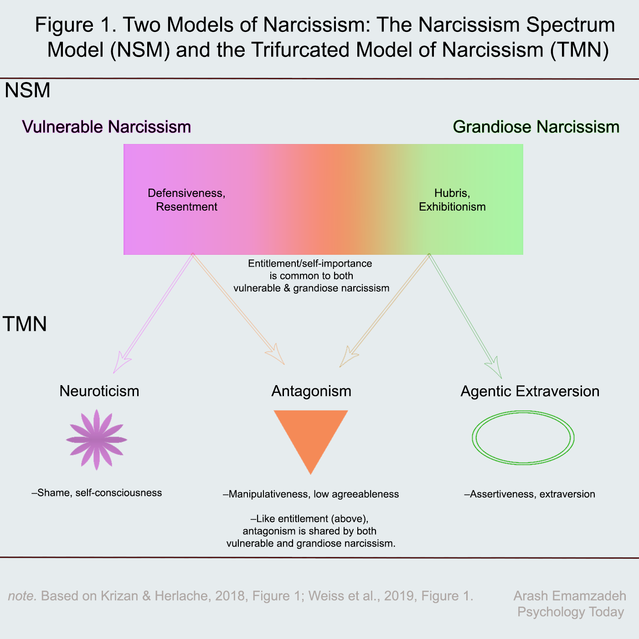Many people often confuse self-confidence with narcissism, assuming that someone who exudes confidence is inherently narcissistic. While both traits involve a strong sense of self, they differ fundamentally in their motivation, interpersonal impact, and psychological underpinnings. Understanding the distinction can help individuals cultivate healthy self-esteem while avoiding the pitfalls of narcissistic tendencies.
Read More: Self Care
Defining Self-Confidence and Narcissism
Self-confidence is generally considered a positive trait, reflecting a realistic understanding of one’s abilities and a belief in one’s capacity to succeed. Confident individuals are secure in themselves without needing external validation excessively (Bandura, 1997).
In contrast, narcissism is characterized by an inflated sense of self-importance, entitlement, and a constant need for admiration (American Psychiatric Association, 2013). Narcissists often overestimate their abilities and seek validation from others to maintain their self-image. While self-confidence stems from internal assurance, narcissism relies on external reinforcement.

Psychological Differences
Two of the most important psychological differences include:
1. Motivation and Self-Perception
Self-confident people are motivated by personal growth and achievement. They pursue goals because they enjoy the process and believe in their competence. Narcissists, however, are motivated by the need to bolster their self-image. They often exaggerate accomplishments or diminish others to maintain a sense of superiority (Morf & Rhodewalt, 2001).
For example, a self-confident manager may acknowledge their strengths while also accepting areas for improvement, seeking feedback to grow professionally. A narcissistic manager, however, may blame colleagues for failures and constantly demand recognition to protect their ego.
2. Emotional Regulation
Self-confidence is associated with emotional stability. Confident individuals can handle criticism constructively, view setbacks as learning experiences, and maintain resilience (Robins & Tracy, 2003). Narcissists often exhibit fragile self-esteem, reacting defensively to criticism and perceiving threats even when none exist. This fragility is sometimes referred to as “vulnerable narcissism”, which contrasts with the more overt, grandiose narcissistic behaviors (Pincus & Lukowitsky, 2010).

Interpersonal Implications
1. Relationships
Self-confidence fosters healthy relationships. Confident individuals are more likely to listen actively, empathize, and collaborate, creating a supportive social environment. Narcissism, in contrast, can damage relationships. Narcissists may manipulate others, dominate conversations, or exhibit a lack of empathy, ultimately straining personal and professional connections (Campbell & Foster, 2007).
2. Leadership Styles
Confident leaders tend to inspire trust, delegate effectively, and encourage team members’ growth. Narcissistic leaders may initially appear charismatic and decisive but often prioritize self-interest over team welfare, leading to high turnover and decreased morale (Rosenthal & Pittinsky, 2006).
Can Narcissism and Self-Confidence Overlap?
Interestingly, narcissism and self-confidence can appear similar externally. Both may project self-assuredness and assertiveness. However, the internal experience distinguishes them. A self-confident person genuinely trusts their abilities and remains secure without constant praise. A narcissist, while appearing confident, harbors insecurity beneath the surface and relies heavily on admiration to feel validated.
Cultivating Healthy Self-Confidence
Developing genuine self-confidence requires introspection, skill-building, and emotional regulation. Some strategies include:
- Self-Awareness: Regularly assess personal strengths and weaknesses. A realistic self-perception helps prevent the inflated self-view associated with narcissism.
- Growth Mindset: Embrace challenges as opportunities to learn rather than threats to self-esteem (Dweck, 2006).
- Mindfulness Practices: Techniques such as meditation can enhance emotional regulation and reduce the need for external validation (Brown & Ryan, 2003).
- Constructive Feedback: Seeking and accepting feedback fosters humility and continuous improvement.
Recognizing Narcissistic Tendencies in Yourself
While self-confidence is healthy, it’s important to monitor for narcissistic tendencies:
- Persistent need for admiration
- Lack of empathy in interpersonal interactions
- Exploitative behavior or manipulation
- Difficulty accepting criticism
- Inflated sense of entitlement
Being aware of these patterns allows for behavioral adjustments, preventing narcissistic traits from interfering with personal and professional life.
Conclusion
Understanding the difference between narcissism and self-confidence is crucial for personal growth and healthy relationships. Self-confidence empowers individuals to pursue goals, build meaningful connections, and navigate life with resilience. Narcissism, however, can mask insecurity and harm interpersonal dynamics. By cultivating self-awareness, emotional regulation, and a growth mindset, individuals can embrace genuine self-confidence without tipping into narcissistic behaviors.
In a society that often rewards outward confidence, it’s easy to mistake narcissistic traits for self-assurance. Yet, true confidence is rooted in internal security, humility, and respect for others — qualities that narcissism cannot sustain.
References
American Psychiatric Association. (2013). Diagnostic and statistical manual of mental disorders (5th ed.). Arlington, VA: American Psychiatric Publishing.
Bandura, A. (1997). Self-efficacy: The exercise of control. New York, NY: Freeman.
Brown, K. W., & Ryan, R. M. (2003). The benefits of being present: Mindfulness and its role in psychological well-being. Journal of Personality and Social Psychology, 84(4), 822–848.
Campbell, W. K., & Foster, C. A. (2007). The narcissistic self: Background, an extended agency model, and ongoing controversies. In C. Sedikides & S. Spencer (Eds.), The self (pp. 115–138). New York, NY: Psychology Press.
Dweck, C. S. (2006). Mindset: The new psychology of success. New York, NY: Random House.
Morf, C. C., & Rhodewalt, F. (2001). Unraveling the paradoxes of narcissism: A dynamic self-regulatory processing model. Psychological Inquiry, 12(4), 177–196.
Pincus, A. L., & Lukowitsky, M. R. (2010). Pathological narcissism and narcissistic personality disorder. Annual Review of Clinical Psychology, 6, 421–446.
Robins, R. W., & Tracy, J. L. (2003). Self-esteem and affect. In M. R. Leary & J. P. Tangney (Eds.), Handbook of self and identity (pp. 401–418). New York, NY: Guilford Press.
Rosenthal, S. A., & Pittinsky, T. L. (2006). Narcissistic leadership. The Leadership Quarterly, 17(6), 617–633.
Subscribe to PsychUniverse
Get the latest updates and insights.
Join 3,036 other subscribers!
Niwlikar, B. A. (2025, October 25). Narcissism vs. Self-Confidence and 2 Important Psychological Differences. PsychUniverse. https://psychuniverse.com/narcissism-vs-self-confidence/



